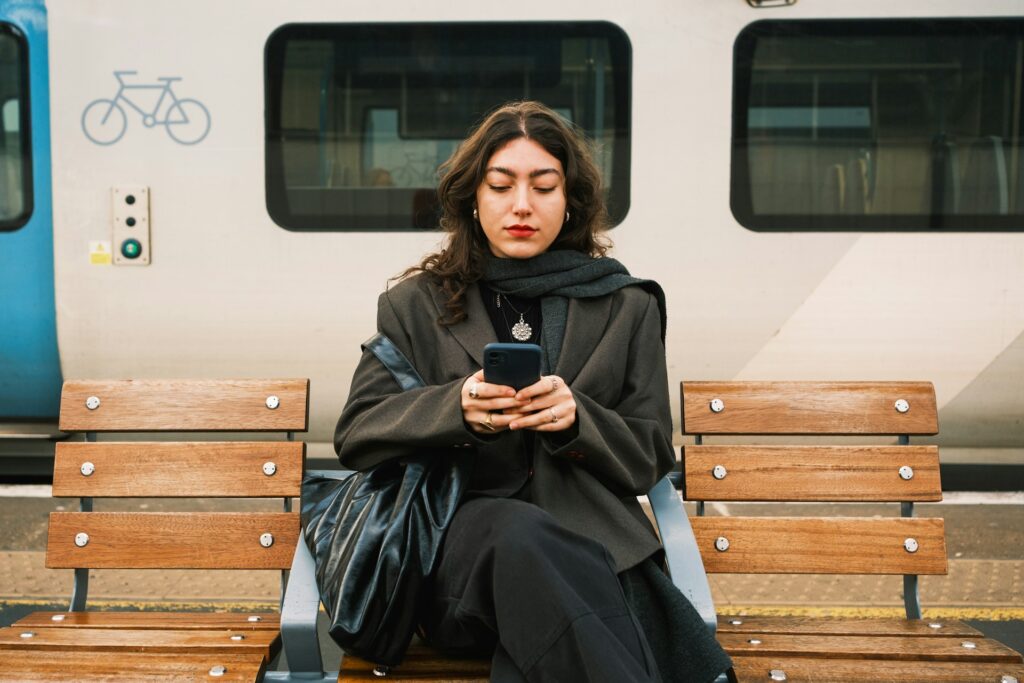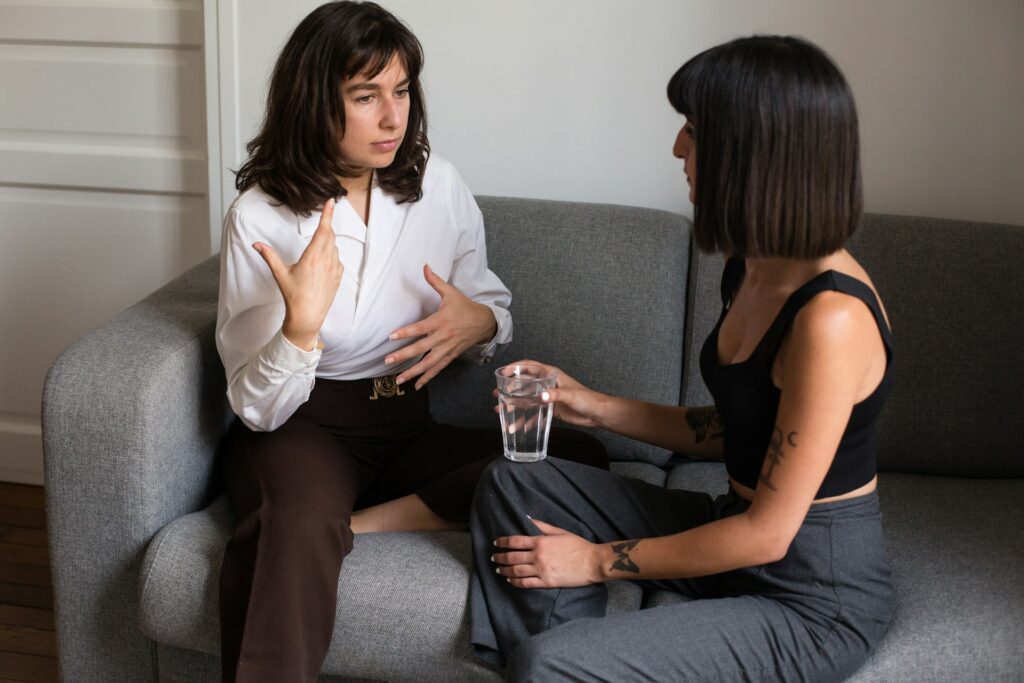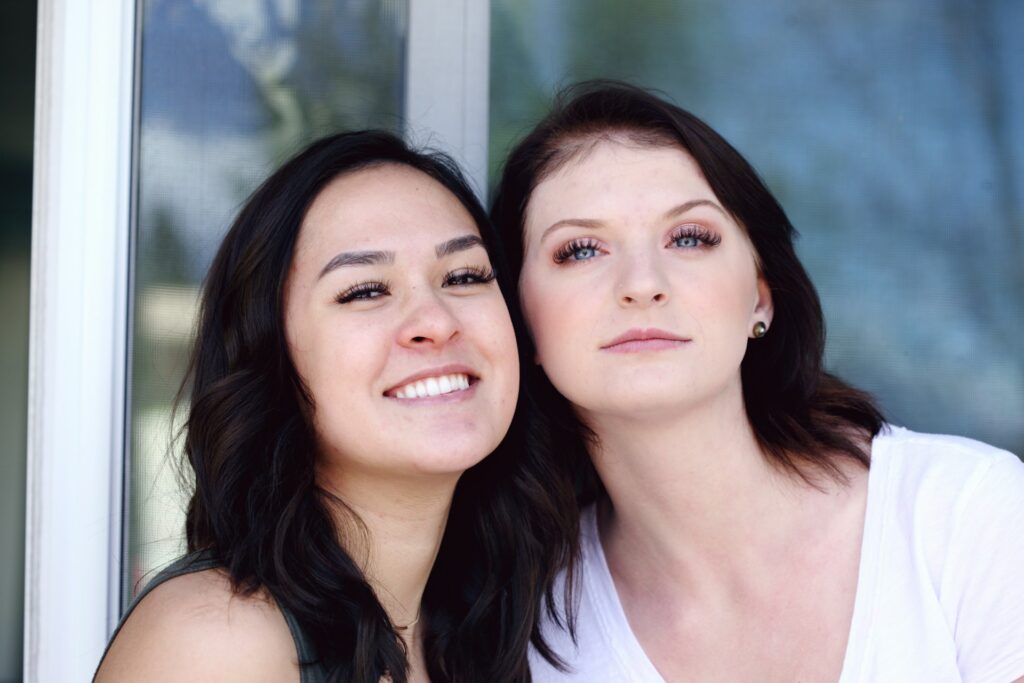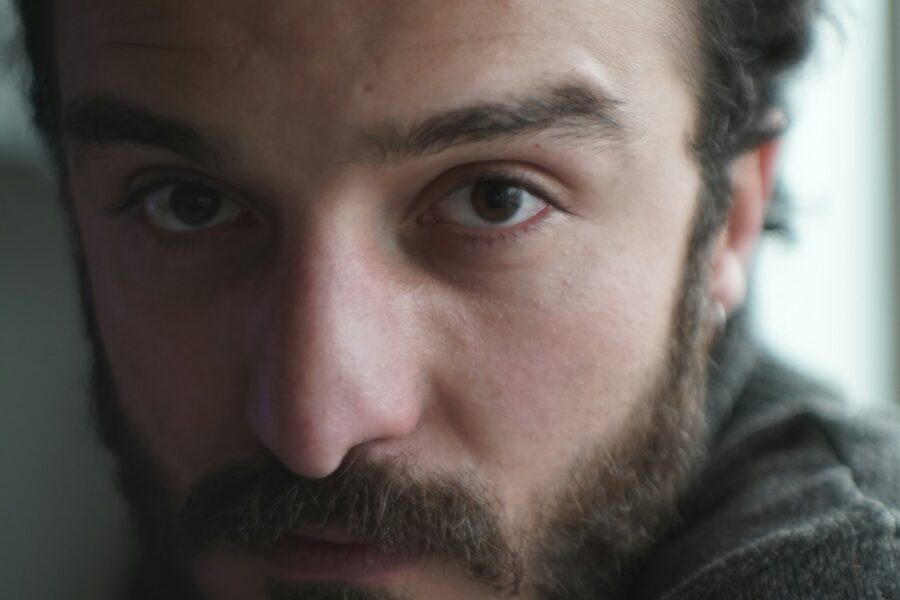We’re all guilty of spending too much time on social media, mindlessly scrolling people’s Instagram Stories or watching weird TikTok videos.

And while the habit might seem pretty harmless, it can have a huge effect on your mental and emotional health, as well as your relationships with other people. You don’t need to give it up completely, by any means, but taking breaks more often might just be the best thing you do for your connections with the people you care about. Don’t believe me? Consider the benefits.
1. You start giving people your full attention.

When you’re not constantly distracted by notifications, stories, or endless scrolling, the people around you start to get the version of you that’s actually present. You stop half-listening while your thumb is glued to your screen. Conversations become deeper, more natural, and less fragmented.
That kind of attention creates warmth and safety in relationships. People feel seen. They trust your interest is genuine. And without even trying, you create space for more meaningful connection—just by looking up and staying present.
2. You stop comparing your relationship to strangers online.

Endless feeds full of proposal videos, anniversary posts, and choreographed couple content can start to warp your sense of what a “good” relationship looks like. You forget that those moments are curated, posed, and polished, not the full story.
When you step away from that constant input, your perspective resets. You stop measuring your connection against unrealistic standards and start valuing the quiet, real-life ways your relationship works. It becomes easier to appreciate your partner without holding them up against filtered fantasy.
3. You become more emotionally available.

Constant scrolling fragments your emotional energy. You might not realise it, but every video, post, and update eats a tiny piece of your attention—and over time, it adds up. You feel mentally drained without knowing why.
Taking a break clears that clutter. Your emotions have more space to breathe. You respond more thoughtfully. You notice how other people are feeling more quickly. Emotional availability increases naturally when your brain isn’t constantly being pulled in a hundred digital directions.
4. You reconnect with people you actually care about.

When you’re off social media, you’re no longer passively keeping up with hundreds of people you haven’t spoken to in years. Your social energy stops going to people who wouldn’t notice if you disappeared tomorrow.
Instead, you start investing time in people you miss. You reach out more deliberately. You make plans, send voice notes, or check in—not because the algorithm reminded you, but because you genuinely thought of them. That change makes friendships feel more real again.
5. You become a better listener.

Good listening takes focus, and most of us don’t realise how often we’re half-distracted, even during important conversations. When you’re always toggling between apps and attention, it becomes harder to really absorb what someone’s saying.
A break allows your mind to slow down. You stop rehearsing your reply while someone else is speaking. You stop missing subtle emotional cues. Over time, you become the person who listens fully, and that’s something people deeply appreciate and remember.
6. You fight less over distractions.

Phones are one of the most common sources of low-level conflict in relationships. You might not be arguing about social media, but the tension builds up when someone’s always glued to their phone during meals, walks, or downtime.
Taking a break eliminates that source of irritation. There’s more shared attention, fewer interruptions, and far less of that “are you even listening to me?” feeling. Instead of feeling second to a screen, your loved ones feel like they’ve got your full presence.
7. You stop taking things so personally.

Social media creates a strange kind of over-awareness. You notice who liked what, who watched your story, who didn’t reply to your comment. That constant monitoring feeds insecurity and misunderstanding, even if no one actually did anything wrong.
Time offline resets your thinking. You stop reading between the lines of people’s posts or messages. You interact in person more, where tone and intent are easier to read. This lowers anxiety and helps you build trust based on reality, not assumption.
8. You notice who’s really there for you.

When you log off, a funny thing happens: the people who genuinely care tend to notice. They reach out in real life. They check in without being prompted. And it shows you which connections go beyond the surface-level scroll. That level of clarity is grounding. You’re reminded who your real circle is—not just who watches your Stories, but who shows up. It helps you strengthen those relationships and worry less about the ones that only existed online.
9. You become less performative in your relationships.

Whether we realise it or not, social media creates a performative layer over our lives. You start doing things for the post—a cute brunch, a trip, an anniversary—even if the moment itself doesn’t feel as magical as it looks online.
Stepping back removes that filter. You stop worrying about how things appear and start tuning into how they actually feel. That makes your connections more sincere and grounded. The relationship becomes something you’re living, not just documenting.
10. You reduce low-level resentment.

Constant exposure to social media fills your brain with things to react to—opinions, arguments, achievements, dramas—and that can make you irritable without knowing why. Then that mood bleeds into your real-life relationships.
Without all that mental clutter, your emotional baseline starts to soften. You have more patience, more bandwidth, and more empathy. People notice that you’re less reactive and more present, which naturally improves how they feel around you.
11. You become more emotionally attuned.

When you’re not split between six tabs and endless updates, you start noticing little things again—the sigh in someone’s voice, the change in their tone, the way they hesitate before answering. These are the moments where true connection lives. Social media numbs that kind of sensitivity, but unplugging reawakens it. You start reading the room better, showing up more thoughtfully, and responding in ways that deepen emotional trust.
12. You learn to enjoy silence with people again.

Without the constant impulse to reach for your phone, those small, in-between moments—waiting in line together, sitting in the car, lying side by side in bed—begin to feel restful instead of awkward. You relearn how to just be with someone. There’s less pressure to fill every silence, and more comfort in simply existing together. It’s one of the subtlest but most important that happens when you take a break.
13. You’re more likely to initiate meaningful connection.

When you’re not relying on digital updates to stay “in touch,” you’re more likely to check in deliberately. You don’t wait for someone to post a story—you send a message, make a plan, ask how they’ve really been. That kind of effort shows. People feel it. It builds intimacy and deepens the sense that you genuinely care—not just when it’s convenient or visible, but when it matters most.
14. You strengthen the relationships that actually live offline.

The most important people in your life—the ones you eat with, laugh with, cry in front of—don’t need you to be more online. They need you to be more present, more curious, more responsive in the real world.
Taking a break helps bring you back to those roots. It reminds you that relationships grow through conversation, shared time, and intentional energy—not likes, comments, or carefully crafted captions. And that realisation alone can transform the way you show up.


